How to pronounce brouillard
Do you find the information below useful? If you do, you can get guides like it for 1,000+ French words by downloading this app for your iPhone or iPad.
| l | 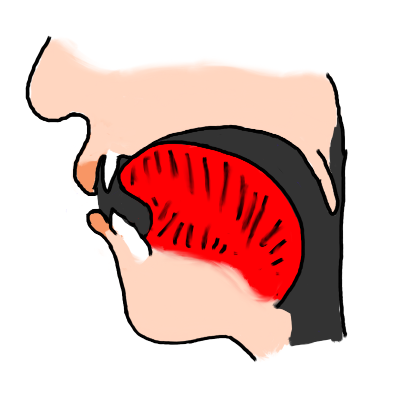 | The French 'l' is similar to the 'l' in English "with Lee". The tongue tip usually touches the back of the upper teeth. It is also a so-called "clear" l: in other words, you don't raise the back of your tongue as you pronounce the French 'l', as occurs in some cases in English. | |
| ə | 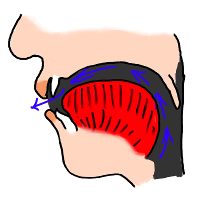 | The 'schwa' or 'neutral e' is pronounced with the tongue in a "central, relaxed" position and the mouth also in a 'half open, relaxed' position. Note that many French speakers actually tend to pronounce this vowel as a 'close eu' vowel (as occurs at the end of words ending in -euse), or at least with some rounding of the lips. | |
| b | 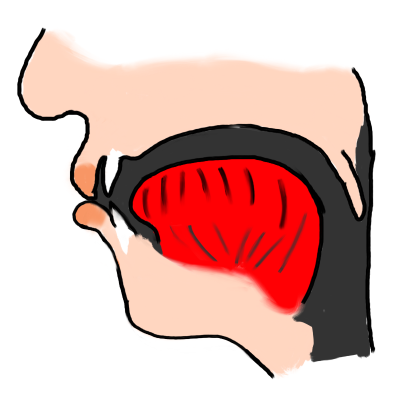 | As with French 'd' and 'g', when you pronounce a French 'b', try to make your vocal cords vibrate all the time your lips are closed (but without the air escaping through your nose as in an 'm' sound). Try to "force some extra air" towards your closed mouth, but without it coming out through your nose. This can take some practice for English speakers! | |
| ʁ | 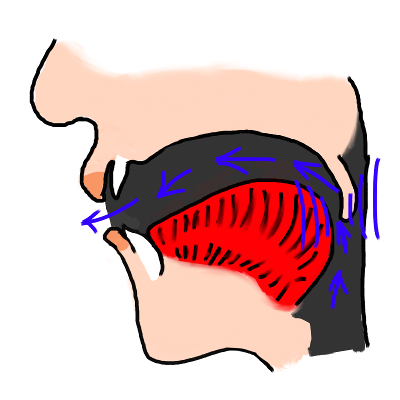 | The French 'r' is generally what is technically called a "uvular fricative". In simple language, that means you bring the back of your tongue close enough to the back of the mouth that it causes friction (the "raspy" sound that you hear) with the escaping air. | |
| u | 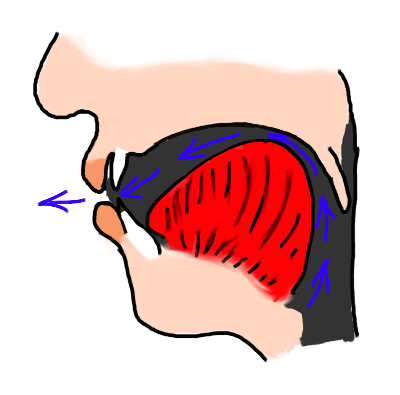 | The French 'ou' vowel is pronounced with the back of the tongue "pushed up towards" the back of the mouth and the lips rounded. The back of the tongue is not quite as close to the roof of the mouth as in the French 'close o' sound. | |
| j | 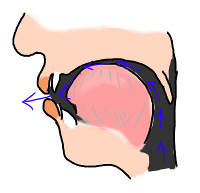 | This is a sound a little like an English "y" as in "yes". To pronounce it, you "glide" rapidly between a French 'i' vowel and the following vowel. (And on the end of a word, you pronounce it by going rapidly from the previous vowel to a French 'i' vowel.) Note the phonetic symbol [j] doesn't mean the sound at the start of "je" or "jean". | |
| a | 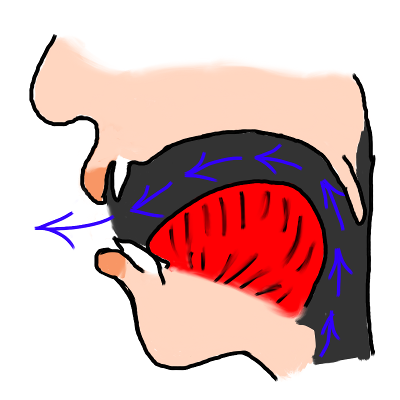 | The French 'a' vowel is pronounced with the tongue far forward in the mouth and the mouth quite wide open, but not quite as open as for a typical English 'a' vowel. | Notice how this vowel is lengthened here before the r sound at the end of the word. |
| ʁ |  | The French 'r' is generally what is technically called a "uvular fricative". In simple language, that means you bring the back of your tongue close enough to the back of the mouth that it causes friction (the "raspy" sound that you hear) with the escaping air. |